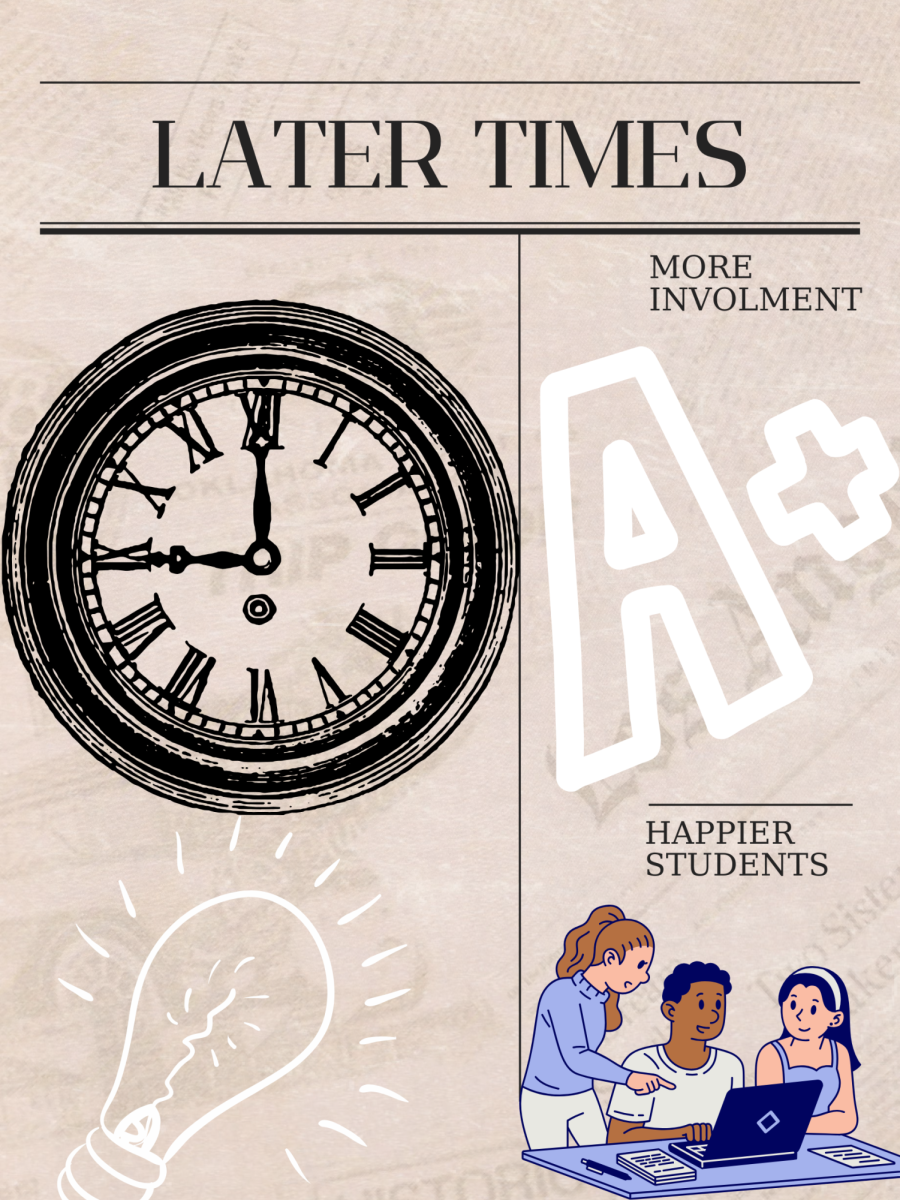For many years, high school students have complained about how early they have to wake up for school, especially when late nights full of homework and activities have them running on fumes.
California and Florida were among the first states to implement the later start time trend, mandating districts to form their new time as soon as possible. Studies have shown that this shift created significant benefits for their students.
“Numerous studies have concluded that the later start times are healthier for kids, reduce juvenile crime, improve grades, boost sports performance, and even result in better teenage driving records because sleepy teens cause more accidents,” stated Elaine S. Povich from Stateline.
Of course, not everyone is on board with the change. One of the biggest problems that come with this new change is transportation. Bus drivers already have tight schedules, and a later start time might make things difficult for families who rely on buses to get their kids to and from school. For parents who cannot drop their kids off themselves, this could cause some issues.

“This new time may benefit teenagers, but it does not accommodate the lifestyles of single-parent families, families with multiple children who attend different schools, and families where both parents work,” stated Adriana Aguilar on Sandiego Union Tribune.
Another concern may be the impact this has on after-school activities. With a later start and end to the school day, students involved in extracurricular activities or jobs might find it harder to balance their responsibilities. Practices and games might run later, leaving less time for homework or afternoon relaxation. For students with part-time jobs, the adjusted schedule might interfere with work hours, adding extra stress to their already busy lives.
This could also be a stressor for teachers and staff who have their own families. Though a later start time might improve student performance, it could lead to complications for staff. Balancing professionality and personal lives could become more challenging, depending on how schools adapt to the changes.
Even with these setbacks, the benefits seem to outweigh the downsides. Teenagers need more sleep to stay healthy and perform their best in school. Figuring out how to help families adjust won’t be easy, but this new schedule could be worth it. After all, a well-rested student is a happier student.
Ashton Dyson, a junior, states, “I think I’ll be more involved and attentive in most of my clubs and academics, later start times mean more rest on my end, and I seriously do need more rest.”











